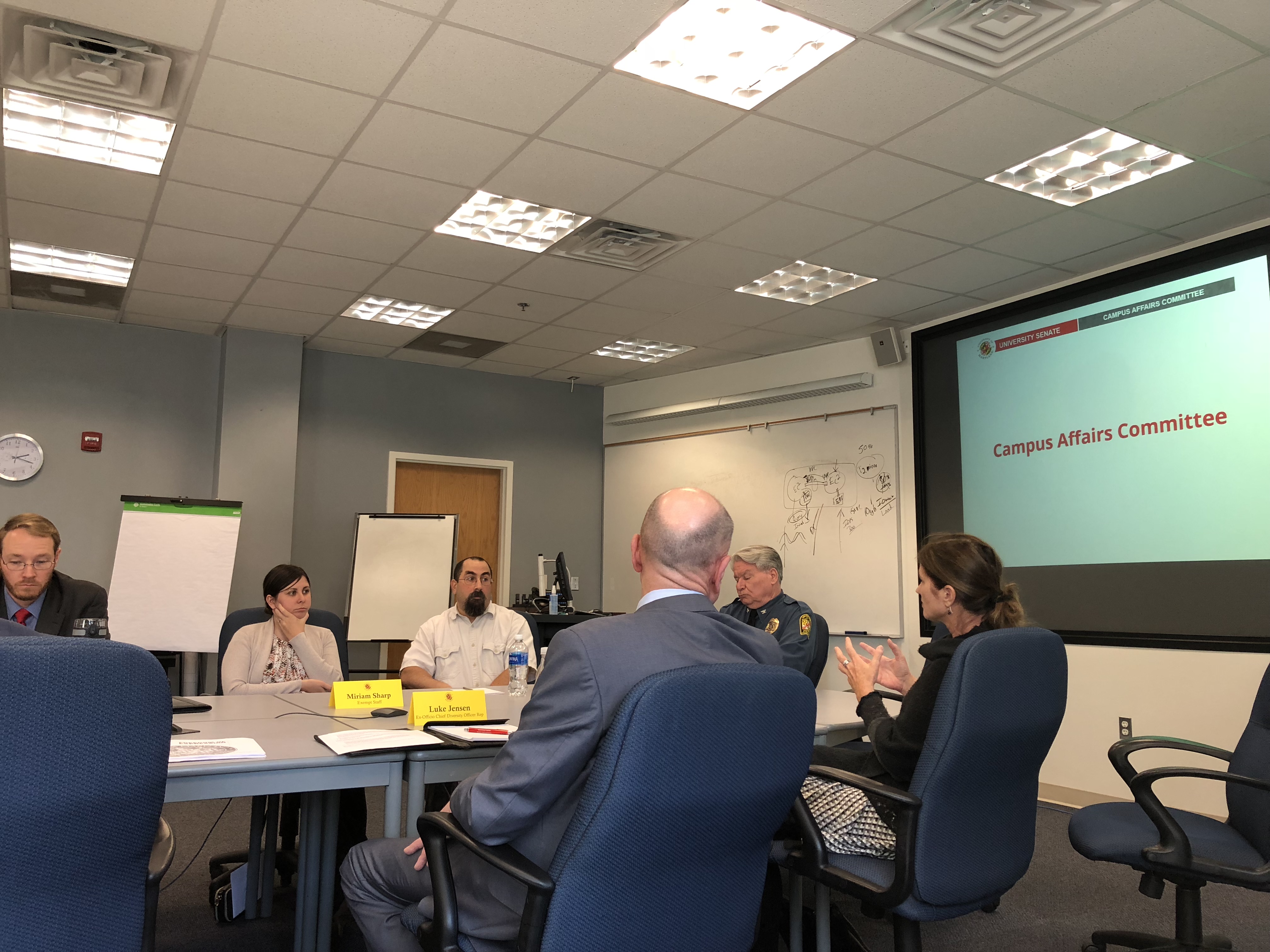After the University Senate’s discussion of a campuswide ban of hate symbols, school officials said such a policy would not be possible.
University Police Chief David Mitchell and Diane Krejsa — this university’s deputy general counsel and chief of staff — told the University Senate’s Campus Affairs Committee Wednesday that the ban would limit First Amendment rights.
“Free speech is still a First Amendment right of citizens, students, faculty and employees and they probably have the right to express themselves in most of these places,” Krejsa said.
“This is not a home. If people are paying money to come to college because they want a home — where people all think alike and everybody has the same political views, and the same social views and the same views on sexual orientation and transgender and whatever religion or whatever it is — they should stay at home,” she said.
The Campus Affairs Committee decided at its previous meeting that it must first understand legal boundaries of the potential ban before evaluating whether it could be implemented.
[Read more: UMD Senate committee wants to ban hate symbols in campus facilities]
This university bans hate and intimidation symbols at athletic events, but Krejsa said this ban cannot be expanded throughout the campus because athletic venues are “limited” and must maintain a “family-friendly atmosphere,” compared to that of an open space.
“It is not a public forum open, as the rest of the campus is towards free speech,” Krejsa said. “I don’t see [the ban from athletic events] as a parallel situation at all to the rest of the public areas of the campus.”
Mitchell and Krejsa said while a misconduct incident involving hateful expression — such as vandalizing a building with a swastika — can lead to punishment, because the action violates the Code of Student Conduct, hate symbols are expressions of views and don’t violate any conduct policy. To issue any consequences for a hate bias incident, it must be investigated thoroughly on a case-to-case basis, they said.
“The hate crime statute in Maryland is predicated on crime occurrence, it begins with criminal misconduct. The hate crime statute is not there for placing a noose without committing a crime,” Mitchell said. “I don’t want to diminish the act … but, the law is such that [just] placing a noose … doesn’t rise to the level of criminal misconduct. I think the difficulty is that folks rationally could maybe accept that … but emotionally it’s very difficult to accept that.”
Catherine Carroll, director of the Office of Civil Rights and Sexual Misconduct, said at the meeting that it is hard to establish similar policies because this university is a public institution.
[Read more: UMPD investigates swastika and other hate bias incidents in dining hall bathroom]
The Senate committee discussed taking a different approach to reviewing the policy. Committee Chair Gene Ferrick suggested that the group divide into smaller groups to discuss topics including similar policies at this university and other Big Ten schools.
“I am a lot more interested in promoting inclusion than I am in preventing hate, because preventing hate is something that you’re just never going to do,” said LGBT Equity Center Director Luke Jensen. “But having said that, I do think we do have a charge that asks us to look at these things, and we might conclude that we can’t do a policy, but we do recommend that the campus respond in a way that is different that what it has.”



